Affiliate links on Android Authority may earn us a commission. Learn more.
Apple announces iPhone 11 Pro, Apple Watch Series 5, and more
Published onSeptember 10, 2019
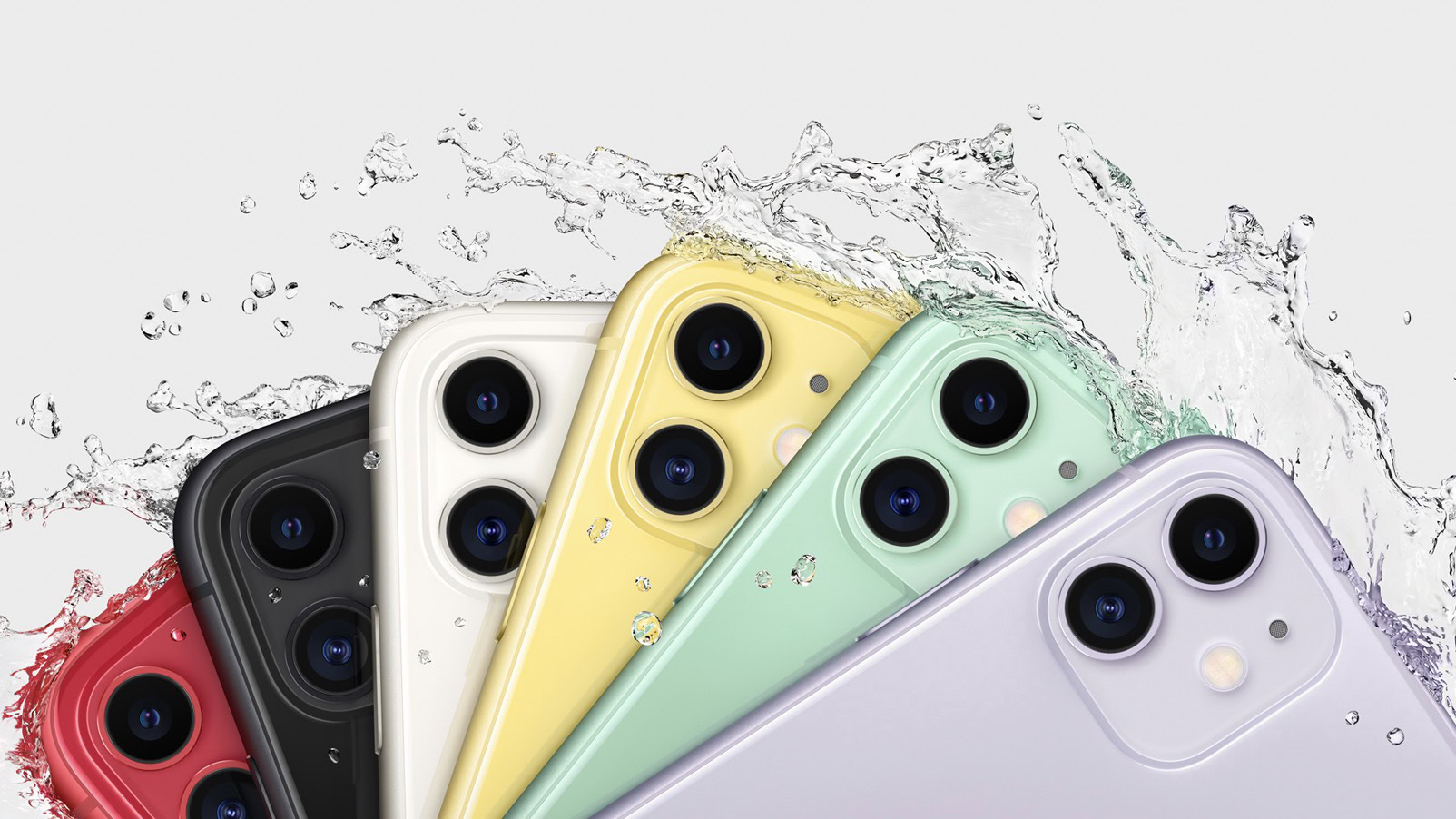
Apple today revealed its 13th generation iPhone family, named the iPhone 11 and iPhone 11 Pro. These new devices go head to head with the best from Samsung, Huawei, LG, and others in a fierce push for consumer dollars.
Sure, we’re an Android site but there’s no denying that Apple tends to influence the competition and so it’s always interesting to see what Apple has up its sleeve. The company fired off announcements in rapid order during a presentation at its Cupertino headquarters. Here’s all the Apple news you need to know.
Apple Arcade

Apple began with details concerning Apple Arcade, its dedicated gaming service, which is integrated into the iTunes App Store.
It will be available starting September 19 in over 150 countries around the world. The company said it will introduce more than 100 games at launch.
The cost? $4.99 per month for the entire family, and Apple is even offering a one-month free trial. The monthly subscription allows for unlimited gaming via the service on iPhones, iPads, Mac and Apple TV.
While you might be tempted to think of this as Apple’s take on Google Stadia, there are some big differences. Unlike Google’s Stadia, this service isn’t cloud based and is focused more on mobile games (albeit very high quality near-console level ones), whereas Google’s cloud service essentially brings PC games to phones, tablets, Chromebooks, and smart TVs.
Apple TV Plus

Apple provided more details concerning its Apple TV Plus paid streaming video service. The company plans to offer Apple-created series to those who subscribe to the monthly streaming service starting in November. More shows will slowly be added over time.
The company provided a glimpse of the original content that will be available, which includes a series staring Game of Thrones’ Jason Momoa.
Of the pricing, Apple CEO Tim Cook said, “This is crazy.”
Apple TV Plus will cost just $4.99 per month, again for the whole family. People who buy new iPhones, Macs, or iPads this fall will receive a one-year subscription to Apple TV Plus for free. The service is available within the Apple TV app on iOS and macOS devices.
iPad
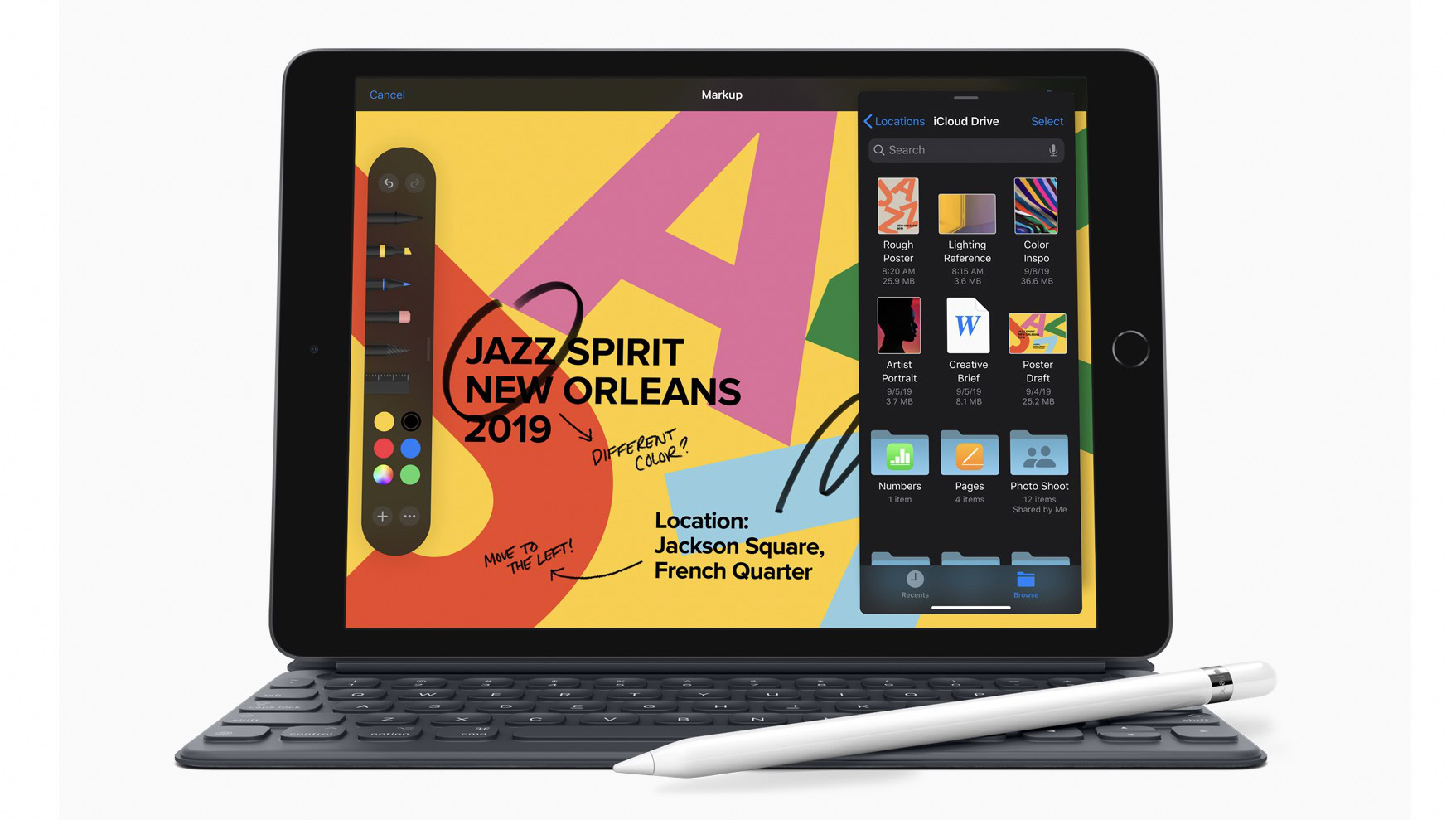
Apple first spoke of iPadOS, its new branch of iOS specifically meant for the iPad. The platform is meant to help developers more directly target the larger screens of Apple’s tablets.
Multitasking is a major feature of iPadOS. It is easier than ever for users to switch between apps. Safari is more powerful, giving users the ability to do more within the browser, particularly when productivity is needed.
For the first time, Apple’s entry-level iPad features smart connectors.
Users have new access to files, a better Photos app, and more advanced video-editing tools. Apple Pencil earns new features, such as a swiping screenshot gesture.
The company announced the new seventh-generation iPad, as well, what it calls a “big upgrade” over the preceding 9.7-inch device. Primarily, the new iPad has a 10.2-inch Retina Display with 3.5 million pixels. It is based on the A10 Fusion chip.
For the first time, Apple’s entry-level iPad features smart connectors. This means it is compatible with Apple’s line of keyboard accessories. It also features improved cameras, faster wireless, and a 100% recycled aluminum chassis that weighs about 1 pound.
The device starts at $329. Education customers will be able to buy it for $299. The device is up for order today and will ship by the end of the month. iPadOS will be available to iPad owners starting September 19.
This device will compete with Samsung’s Galaxy Tab S6 and other Android tablets.
Apple Watch Series 5
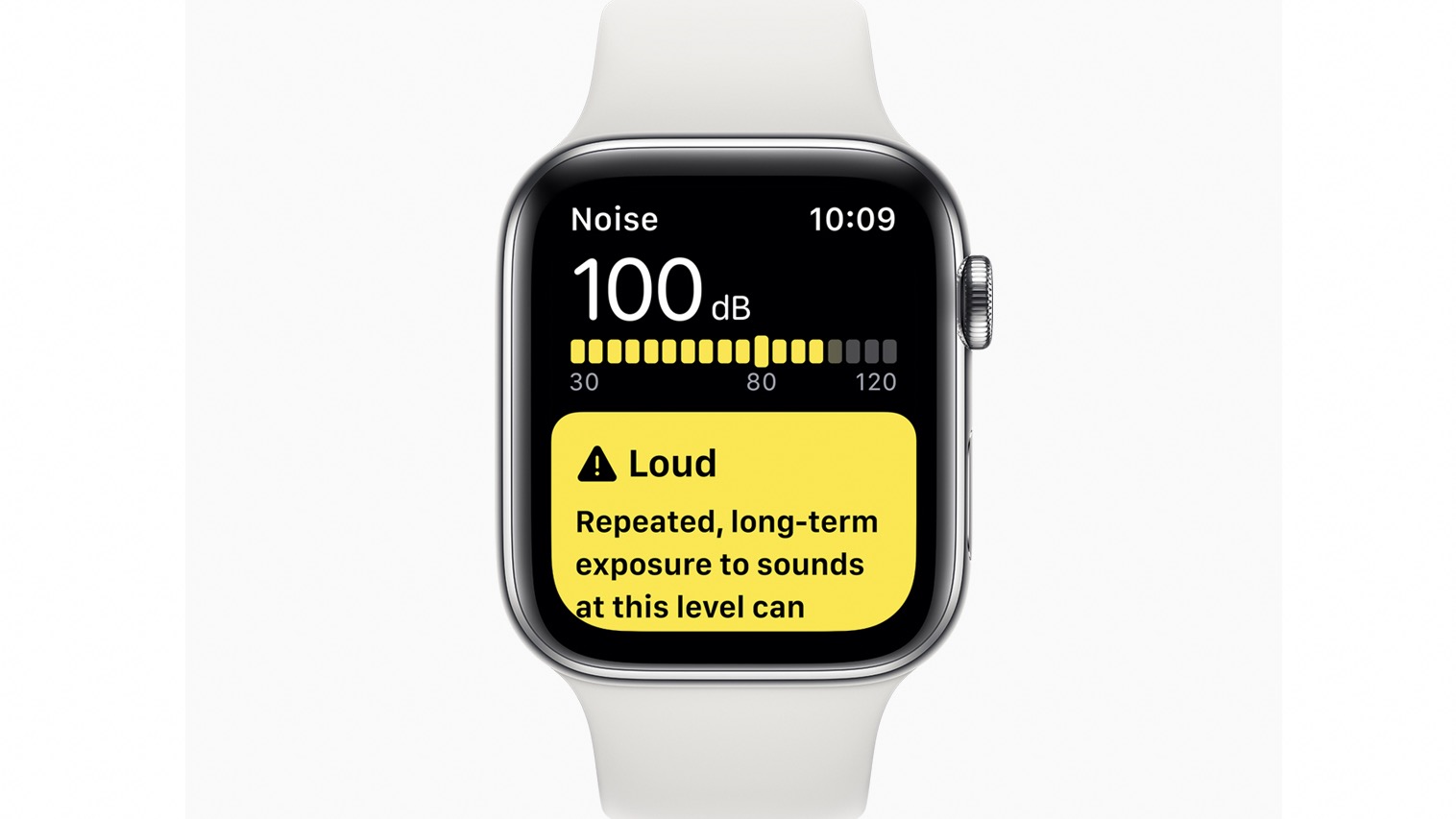
Apple had updates for its wearable, as well.
The company first detailed its new Apple Research app, which will make participating in medical research studies easier for regular people. The research tool has already provided invaluable information to those researching the heart, hearing, and female cycles. The Apple Research app will be available later this fall.
Apple had hardware news to share, too, and introduced the Apple Watch Series 5.
The watch has a new, always-on Retina Display that never sleeps. The time and complications will always be visible. Brightness will shift up and down, however, to help maintain battery life. The screen can refresh at rates from 60Hz down to 1Hz to further conserve power. Despite the always-on screen, the Watch still delivers 18-hours of battery life.
The Apple Watch Series 5 has a new, always-on Retina Display that never sleeps.
Apple says it has optimized apps for the always-on display, so workout or work settings vary and cater to those particular situations.
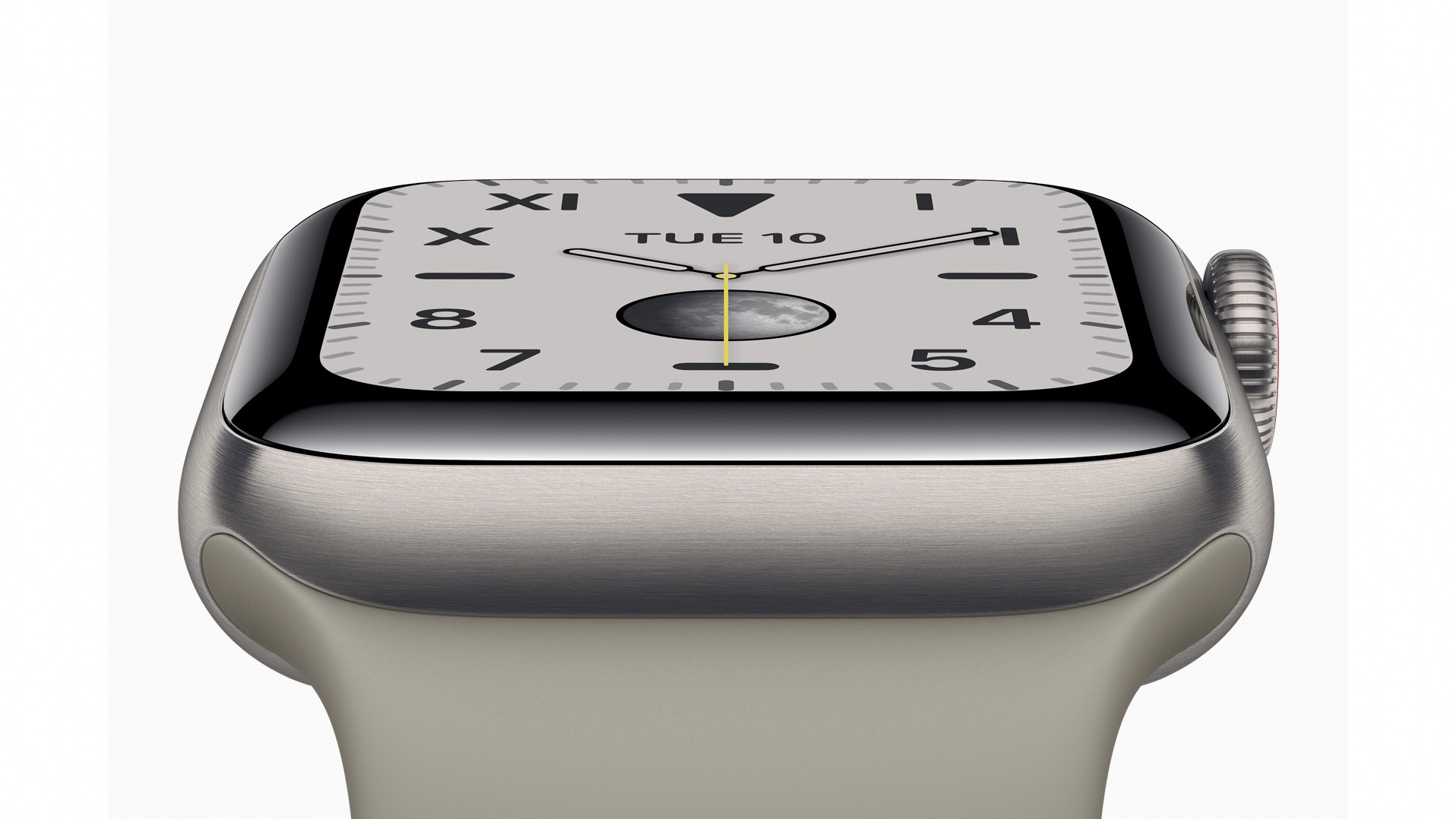
The Series 5 has a built-in compass. Together with the new Apple Maps app, users will be able to see direction, heading, latitude, longitude, elevation, and incline. These functions are meant to help outdoor adventurers as they explore everything nature has to offer.
Apple says the Series 5 watch includes international emergency calling, even when the watch is not connected to an iPhone.
Aluminum models come in silver, gold, and space gray. They are made from 100% recycled materials. Stainless steel materials come in space black, gold, and polished. Natural brushed titanium and white ceramic join the materials options. New Nike models sport refreshed bands and watch faces. The same applies to Hermès, which will offer a space black option with a black-and-brown, wrap-around leather band.
Read next: Best Apple Watch accessories
Apple Watch Series 5 GPS models will start at $399 and LTE models will cost $499. No pricing was provided for the special editions. Pre-orders start today and the devices will be available in stores September 20.
Apple intends to continue selling the Apple Watch Series 3 for $199.
This device will compete against a slew of capable wearables announced at IFA 2019.
iPhone 11
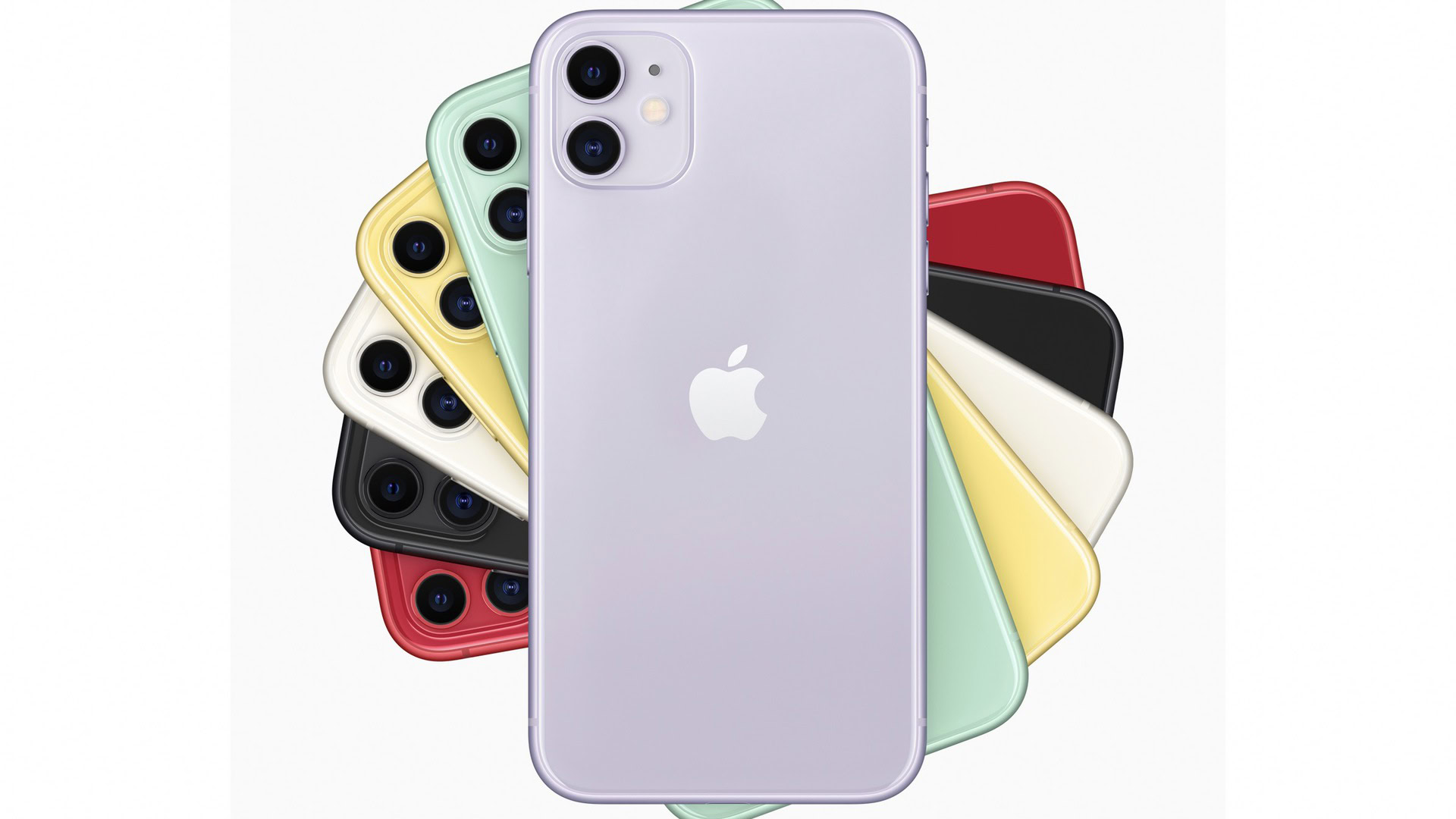
Apple’s new iPhones for 2019 cover a range of price points and features.
The iPhone 11 replaces the iPhone XR and has a new design. It relies on anodized aluminum in the frame and glass panels front and back. The glass surrounding the camera was milled down from a single piece to more snugly fit the lenses. The iPhone 11 comes in black, white, purple, yellow, green, and Product Red.
It features a 6.1-inch Liquid Retina Display that is enhanced by spatial audio and Dolby Atmos for immersive theater experiences
A refreshed dual-camera system features wide and ultra-wide lenses. The main camera features a 26mm-equivalent lens and 12MP sensor at f/1.8. When using the camera, it can show a preview of what wide-angle shots might look like. The ultra-wide lens, which features a 13mm-equivalent lens and 12MP sensor at f/2.0, provides a larger landscape for capturing more of your surroundings.
Enhanced HDR is meant to help improve contrast across imaging scenes. The refreshed Night Mode will come on automatically to help brighten photos and reduce noise. The screen-based True Tone flash is now 36% brighter.
Users can record 4K video at up to 60fps with extended dynamic range, slow motion, and time lapse. The video app allows people to switch between normal view and wide-angle when recording video without losing color or tone. A new tool lets people quickly record video with a long press of the shutter button, allowing users to record without expressly requiring them to open the video app.
Apple claims the 7nm A13 Bionic SoC is the fastest-ever CPU/GPU in a smartphone.
The selfie camera has been improved to 12MP, with 4K video capture at up to 60fps, HDR, and slow-motion for slow-mo selfies (that Apple calls slofies).
The A13 Bionic is the new Apple-designed processor behind the iPhone 11. Apple claims the A13 is the fastest-ever CPU in a smartphone, though it declined to provide clock speed or benchmark scores. Apple made the same claim of the A13’s GPU.
Apple says the iPhone 11’s battery will last up to one hour longer than the battery found in last year’s iPhone XR (which already had stellar battery life).
The iPhone 11 will be available for preorder on September 13 and will reach stores on September 20. Pricing starts at $699.
The iPhone 11 will go head-to-head with the Samsung Galaxy S10 and LG G8.
iPhone 11 Pro
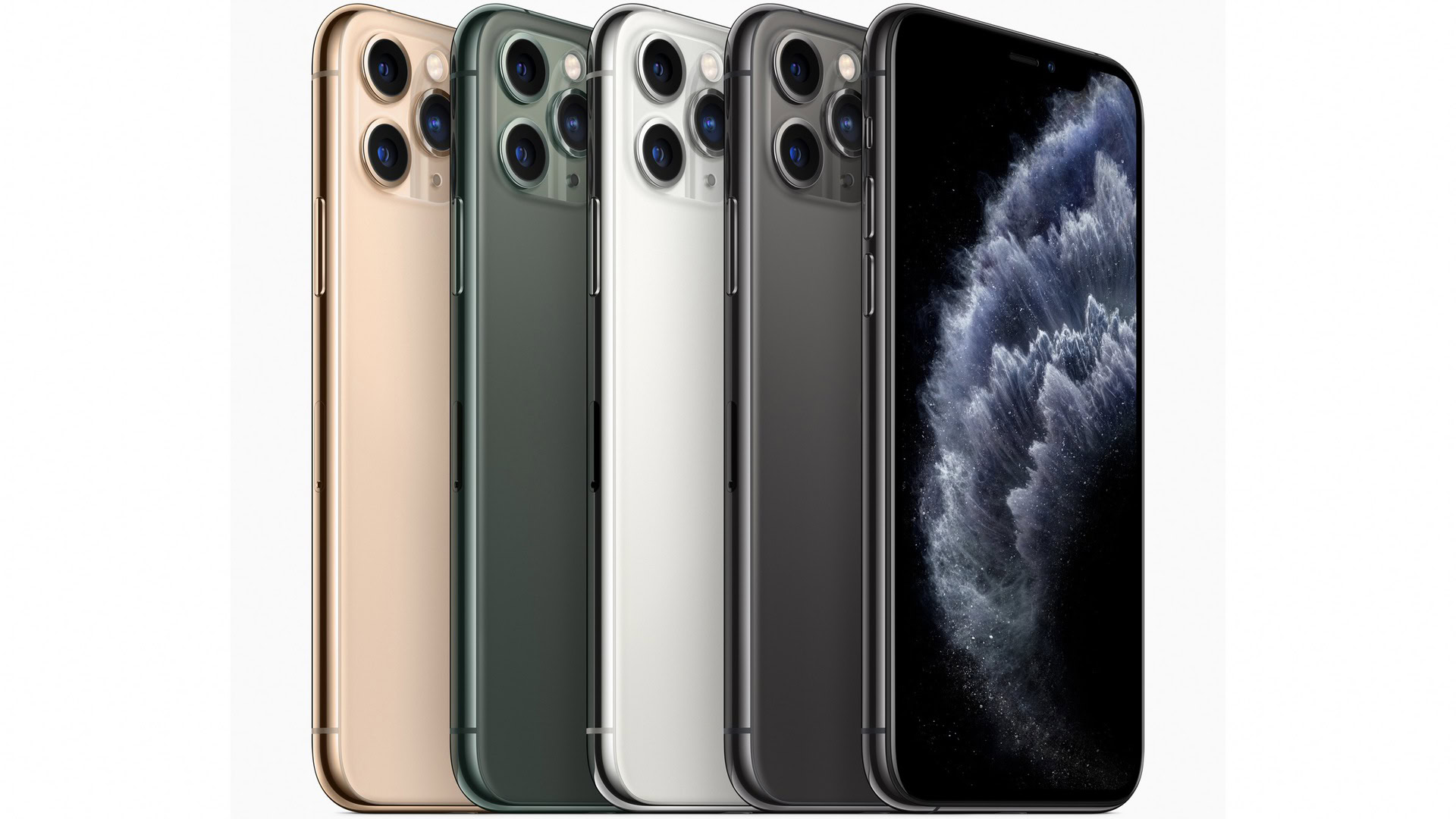
Apple’s flagship smartphones, the iPhone 11 Pro 5.8-inch and 6.5-inch, are even more powerful thanks to a triple-camera array and revised design.
The iPhone 11 Pro’s frame is made of surgical steel and the back glass is a single piece, even with the raised camera module. It comes in midnight green, space gray, silver, and gold.
Like last year, the displays are available in 5.8 and 6.5 inches. The OLED panel features a 2,000,000:1 contrast ratio, PP3 color, spatial audio with Dolby 10, and Dolby Atmos. It is as bright as 1,200 nits with a pixel density of 468ppi.
The iPhone 11 Pro OLED panel features a 2,000,000:1 contrast ratio, PP3 color, 1,200 nits brightness and a pixel density of 468ppi.
The iPhone Pro is also powered by the A13 Bionic processor. The two most important features, according to Apple, are machine learning and improved efficiency. For example, the CPU features new accelerators that allow for over 1 trillion operations per second. This works together with the machine learning controller to balance efficiency and performance.
Apple says the A13 relies on a 7nm process with 8.5 billion transistors optimized for efficiency. The A13 includes four efficiency cores to help reduce battery life and handle most background tasks. Apple says it can light up only certain sections of the chip that are needed for a specific given high-power task. This results in 20% speed improvements system wide, as well as reduced power draw. In other words, the A13 is faster and consumes much less power.
Apple says the 5.8-inch iPhone 11 Pro gets four more hours of battery life than last year’s 5.8-inch iPhone XS, and the 6.5-inch iPhone 11 Pro gains five more hours of battery life compared to last year’s iPhone XS Max.
Apple has adopted the triple-rear-camera array that has become popular amongst today’s leading Android devices. This means it features standard, telephoto, and wide-angle lenses. The main lens has a 12MP sensor at f/1.8, the telephoto lens has a 12MP sensor at f/2, and the wide-angle also has a 12MP sensor at f/2 with a field of view as wide as 120 degrees.
Apple COO Phil Schiller called Deep Fusion “computational mad science.”
Apple plans to make a camera feature called Deep Fusion available via a software update later this fall. The tool helps improve contrast by shooting nine images and then blending them within the neural engine which picks the best pixels to optimize for detail and low noise. Apple COO Phil Schiller called it “computational mad science.”
All three cameras are capable of shooting video up to 4K at 60fps with HDR. Users will be able to switch between the cameras seamlessly while shooting. Apple says it keeps color and tone the same across the three lenses whiles capturing video. New editing tools provide even more control for creators over crop, zoom, color, and more.
Other features of the Apple iPhone 11 Pro include better water resistance, faster LTE 4G, and more shatter-resistant glass in textured matte finishes. Apple says the devices were made with environmental considerations in mind.
The iPhone 11 Pro will be available for preorder on September 13 and will reach stores on September 20. Pricing starts at $999 for the 5.8-inch model and $1,099 for the 6.5-inch model. Orders start at 5am PST / 8am EST. Apple will keep the iPhone XR in the mix at $599 and the iPhone 8 at $499.
The Pro models will compete against myriad flagship devices from Google, Huawei, Samsung, and others.
Retail
Apple announced at its fall event a feature called the Apple Studio Experience. This tool lets people mix and match not only Apple Watch bands, but iPhones and iPhone cases for a more personal look. These customizations can be handled online as well as in select stores.
The expanded trade-in program from Apple allows people to earn more cash for older iPhones and pair those discounts with lowered monthly payments for all three new iPhones. Apple says this is meant to help those who often want the latest device on a recurring payment plan.
Last, Apple’s flagship 5th Avenue store in New York City will reopen to the public on September 20, the same day the new iPhones go on sale. The store features a redesigned exterior glass cube and wholly re-envisioned interior.
What do you think of Apple’s news? Be sure to sound off (be nice!) in the comments below!